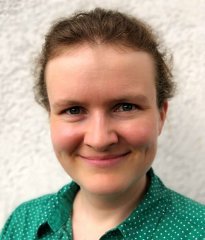Johannes Gutenberg University (JGU) Mainz
Peter Baumann Dorothee Dormann Susanne Foitzik Thomas Hankeln Mark Helm Meret Huber Edward Lemke Brian Luke Helen May-Simera Marion Silies Lukas Stelzl Roland Strauss Andreas Wachter Marie-Luise Winz Eva Wolf Uwe Wolfrum Shuqing Xu Hans ZischlerCo-translational quality control in eukaryotic cells

Proteins are central to any living organism. To protect cells from dysfunctional and toxic, disease-causing proteins formed by aberrant translation, eukaryotic co-translational quality control pathways detect translation defects and remove aberrant protein products, together with associated faulty mRNA blueprints and sometimes faulty ribosomal components. Much is still unknown about the molecular mechanisms underlying co-translational quality control, and how these interact with other cellular machineries and with organismal health and life cycle. These are research objects in my group. We use sequencing-based methods, most prominently UV crosslinking and analysis of cDNA (CRAC), to study RNA-protein interactions, translation and RNA modification in the context of co-translational quality control. These techniques provide a unique toolbox to approach our key questions:
1. Which molecular interactions underlie co-translational quality control triggering and how are different targets distinguished?
2. How does co-translational quality control interact with cellular stress responses, translation regulation and RNA modification?
3. How does co-translational quality control work in neurons and does it change with ageing?
With our RNA-centred research, we want to make fundamental contributions to the understanding of co-translational quality control and its links to age-related neurodegenerative diseases, to ultimately inform efforts to cure, prevent or delay the onset of such diseases.
Positions held
- Since 2020: Junior Professor, Institute of Pharmaceutical and Biomedical Sciences (IPBS), Johannes Gutenberg University (JGU), Mainz
- 2015 - 2020: Postdoctoral Research Associate (EMBO Long-term Fellowship 2015-2017), University of Edinburgh
- 2014: Postdoctoral Researcher, Heidelberg University
Education
- 2014: PhD in Biology, Heidelberg University, Hartmut Hoffman-Berling International Graduate School of Molecular and Cellular Biology (HBIGS)
- 2009: M.Sc. in Molecular Biotechnology, Heidelberg University
- 2006: B.Sc. in Molecular Biotechnology, Heidelberg University
Awards and recognition
- 2016: ‘Förderpreis der Fachgruppe Biochemie’ , thesis prize of the Biochemistry Division of the
- Society of German Chemists (GDCh).
- 2015: EMBO Longterm Fellowship
- 2011: HBIGS PhD Fellowship
Selected publications by Marie-Luise Winz
M.L. Winz, L. Peil, T.W. Turowski, J. Rappsilber, D. Tollervey (2019) Molecular interactions between Hel2 and RNA supporting ribosome-associated quality control. Nature Communications, 10(1), 563. Link
M.L. Winz, H. Cahová, G. Nübel, J. Frindert, K. Höfer, A. Jäschke (2017) Capture and sequencing of NAD-capped RNA sequences with NAD captureSeq. Nature Protocols, 12 (1), 122-149. Link
H. Cahová*, M.L. Winz*, K. Höfer*, G. Nübel, A. Jäschke (2015) NAD captureSeq indicates NAD as a bacterial cap for a subset of regulatory RNAs. Nature, 519:374- 377.
(*: equal contributions). Link
R. Hauenschild, L. Tserovski, K. Schmid, K. Thüring, M.L. Winz, S. Sharma, K.-D. Entian, L. Wacheul, D.L.J. Lafontaine, J. Anderson, J. Alfonzo, A. Hildebrandt, A. Jäschke, Y. Motorin, M. Helm (2015) The reverse transcription signature of N-1-methyladenosine in RNA-Seq is sequence dependent. Nucleic Acids Research, 43(20):9950-9964. Link